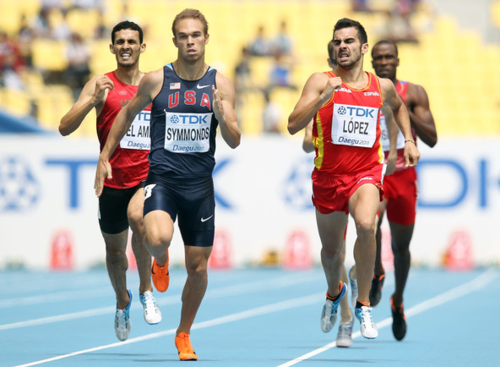Peter Abraham is a keen observer of sports marketing, the digital world and branding, among other things. Peter was behind the superb digital program that the Honda City of Los Angeles Marathon did through the race in March 2011. He is now consulting on branding, sports marketing and marketing.
HIs blog puts most of the concerns of athletes and their marketing, into one document. He has links to Nick Symmonds famous Facebook page, and Toni Reavis’ comments as well.
We highly recommend Peter Abraham’s blog, which can be found, with the complete article at http://thepeterabraham.tumblr.
RBR understands that USATF is putting a panel together to discuss logos, branding of athletes and the like at the upcoming USATF convention.
What do you think? Send us a note at runblogrun@gmail.com.

Unless you’re living in a cave somewhere, you’ve no doubt been
bombarded with an alarming number of recent stories involving
institutional corruption and arrogance: The Penn State scandal, News Corp., FIFA, and Wall Street
have all been in the news lately for these reasons. Corruption is
nothing new–you could go back to the beginning of recorded history and
find plenty of examples. Only yesterday I tweeted
about how our own Congress bowed to lobbying pressure and classified
pizza as a “vegetable” for the sake of school lunches. Even our
children’s health is for sale! I got more retweets from this one item
than I had for any other of my 2,000 tweets. Clearly, I had struck a
nerve.
I try to see the effects of cultural trends in sports. And
institutional arrogance is impacting sports in many ways, but most
obviously in the relationships between professional athletes and their
governing bodies. Three places jump out at me immediately: The NBA
strike, pro cyclists’ ambivalence toward the UCI, and the anger of elite runners towards the IAAF.
While the NBA strike is well-chronicled on a daily basis, the UCI and IAAF situations aren’t as well-known to the public. But they’re both interesting.
I’ve followed professional cycling since I raced bikes in college.
During that time, I’ve witnessed a steadily crumbling relationship
between the riders and cycling’s global governing body, the UCI. Like
most governing bodies, the UCI enjoys a monopoly whose power lies in
being the one group authorized by the International Olympic Committee to
send athletes from their sport to the Olympics. So all of the world’s
national governing bodies have to play by the UCI’s rules. And the UCI
becomes all about…the athletes? Sorry, no. They exist solely to further
their own agenda of money and power. I completely lost faith in the UCI
when they took a $100,000 bribe donation from Lance Armstrong in 2002. To this day the organization denies that it was a conflict of interest.
So it’s no surprise that rider anger has been steadily growing under the incompetent management
of UCI Chief Pat McQuaid. Riders and teams have recently been
threatening to start their own breakaway league, and sooner or later I
believe that will happen.
The IAAF is track and field’s global governing body. They hold even
more sway over their sport than the UCI. And that’s because track and
field would barely exist as a competitive sport without the Olympics. So
the IAAF has enormous leverage. Cycling, by comparison, is beholden
much more to the Tour de France than its own governing body. Athletes
for years have chafed at the IAAF’s restrictive logo rules, which allow
only a single tiny sponsor logo on a runner’s uniform. That prevents
runners from signing up sponsors and making a living, because most
sponsors want their logo “on the car,” like NASCAR. The IAAF perpetuates
this draconian policy so that athletes’ individual sponsors (from which
the IAAF makes nothing) don’t compete for TV time with the sponsors on
the bib at big meets (from which the IAAF makes a lot of money).
While elite athletes, managers, and sponsors have discussed this
situation for years, now it’s become a public dialogue. America’s top
800 meter runner, Nike athlete Nick Symmonds, has started a Facebook page
devoted to the issue. I think it’s a positive sign that we’re having a
public discussion about the situation. Unfortunately, however, the IAAF
may not do anything about it. As Toni Reavis pointed out in his excellent response to Nick’s post, governing bodies don’t care much about the needs of the athlete.
He’s right, of course, and the sad thing is that without a strong
system of compensation for athletes, we really don’t have much of a
sport left. Drunk on its own power, the IAAF is strangling the very
sport that it manages.
I, for one, am anxious to see how this all plays out, in all three
instances. The one thing I do know is that once the genie is out of the
bottle, and the athletes find their voice, the problem won’t magically
go away.
Author

Larry Eder has had a 52-year involvement in the sport of athletics. Larry has experienced the sport as an athlete, coach, magazine publisher, and now, journalist and blogger. His first article, on Don Bowden, America's first sub-4 minute miler, was published in RW in 1983. Larry has published several magazines on athletics, from American Athletics to the U.S. version of Spikes magazine. He currently manages the content and marketing development of the RunningNetwork, The Shoe Addicts, and RunBlogRun. Of RunBlogRun, his daily pilgrimage with the sport, Larry says: "I have to admit, I love traveling to far away meets, writing about the sport I love, and the athletes I respect, for my readers at runblogrun.com, the most of anything I have ever done, except, maybe running itself." Also does some updates for BBC Sports at key events, which he truly enjoys. Theme song: Greg Allman, " I'm no Angel."
View all posts




















